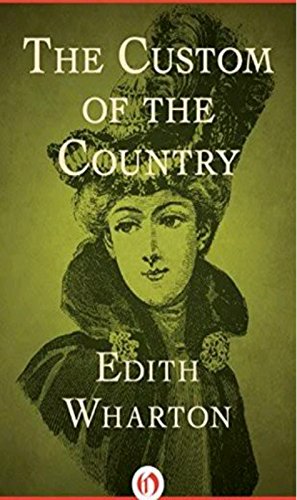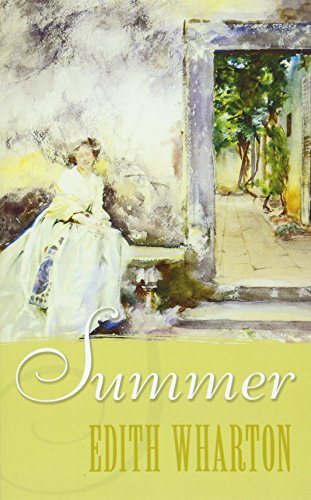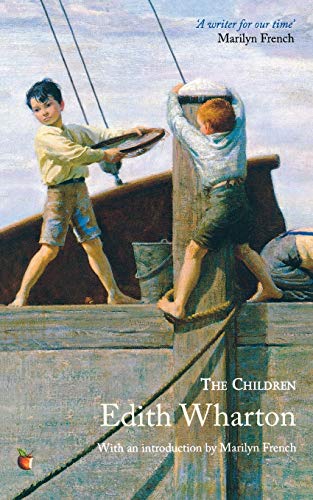Edith Wharton
The Custom of the Country
eBook
( July 12, 2018)
The Custom of the Country is a 1913 novel by Edith Wharton. It tells the story of Undine Spragg, a Midwestern girl who attempts to ascend in New York City society.The September 2012 issue of Vogue included a series of photographs by Annie Leibovitz of scenes from the book, shot at The Mount, Wharton's Berkshire estate. Models included actors Elijah Wood and Jack Huston.[6]
Julian Fellowes has cited The Custom of the Country as an inspiration for his creative work, including Downton Abbey. Upon receiving the Edith Wharton Lifetime Achievement Award in 2012 in Boston, Massachusetts, Fellowes said: "It is quite true that I felt this was my book; that the novel was talking to me in a most extreme and immediate way. I think it's a remarkable piece of writing. In Undine Spragg, Wharton has created an anti-heroine absolutely in the same rank as Becky Sharp, Scarlett O'Hara, or Lizzie Eustace. Undine has no values except ambition, greed and desire, and yet through the miracle of Wharton's writing, you are on her side. That's what's so extraordinary about the book...I decided, largely because of her work, that it was time I wrote something."[7]
The Spraggs, a family of midwesterners from the fictional city of Apex who have made money through somewhat shady financial dealings, arrive in New York City at the prompting of their beautiful, ambitious, but socially-naive daughter, Undine. She marries Ralph Marvell, a member of an old New York family that no longer enjoys significant wealth. Before her wedding, Undine encounters an acquaintance from Apex named Elmer Moffatt, a character with "a genuine disdain for religious piety and social cant", as the scholar Elaine Showalter observes. Undine begs him not to do anything that will endanger her wedding to Ralph. Elmer agrees.
Although Ralph dotes on Undine, his finances do not permit the extravagant lifestyle Undine desires, and she feels that her in-laws scorn her. When she becomes pregnant, she is disconsolate; and she neglects her son, Paul, after he is born. Alone in Europe, Undine begins an affair with the nouveau riche Peter Van Degen, who is married to Ralph's cousin, Clare. She then divorces Ralph in the hope of marrying Peter, but this does not work out: Peter seems to want nothing more to do with Undine, and Clare will not grant him a divorce anyway. As a divorcee, Undine loses her high position in society, and spends a few years living in North Dakota, New York, and Paris, scheming to scramble up the social ladder again.
In Paris, a French count, Raymond de Chelles, falls in love with Undine. They desire to get married, but, as a Catholic, Raymond cannot marry a divorcée. To procure enough money to bribe the Pope to annul Undine's previous marriage, Undine blackmails Ralph. Having been awarded custody of their son, but allowing him to live with Ralph (it was inconvenient for her to raise him in Europe), she demands that the boy be sent to her. It is clear that she will let him remain with Ralph only if he sends her a large sum of money. Ralph does not have sufficient funds of his own, so he borrows money from friends and family and invests it in one of Elmer Moffatt's business deals. The deal does not go through in time to meet Undine's deadline, and Moffat also informs Ralph that he had once eloped with Undine and then was divorced from her—the secret she feared that New York society would discover. Shocked, and also distraught at the thought of losing his son, Ralph commits suicide. Undine is able to marry Raymond as a widow, though this would not be possible if Raymond knew of her first marriage to Moffat.
Undine is soon dissatisfied with Raymond, too. The de Chelles are hidebound aristocrats, their wealth tied up in land and art and antiques that they will not consider selling, and Undine cannot adjust to the staid customs of upper-class French society. She also resents having to spend most of her time in the country.
Julian Fellowes has cited The Custom of the Country as an inspiration for his creative work, including Downton Abbey. Upon receiving the Edith Wharton Lifetime Achievement Award in 2012 in Boston, Massachusetts, Fellowes said: "It is quite true that I felt this was my book; that the novel was talking to me in a most extreme and immediate way. I think it's a remarkable piece of writing. In Undine Spragg, Wharton has created an anti-heroine absolutely in the same rank as Becky Sharp, Scarlett O'Hara, or Lizzie Eustace. Undine has no values except ambition, greed and desire, and yet through the miracle of Wharton's writing, you are on her side. That's what's so extraordinary about the book...I decided, largely because of her work, that it was time I wrote something."[7]
The Spraggs, a family of midwesterners from the fictional city of Apex who have made money through somewhat shady financial dealings, arrive in New York City at the prompting of their beautiful, ambitious, but socially-naive daughter, Undine. She marries Ralph Marvell, a member of an old New York family that no longer enjoys significant wealth. Before her wedding, Undine encounters an acquaintance from Apex named Elmer Moffatt, a character with "a genuine disdain for religious piety and social cant", as the scholar Elaine Showalter observes. Undine begs him not to do anything that will endanger her wedding to Ralph. Elmer agrees.
Although Ralph dotes on Undine, his finances do not permit the extravagant lifestyle Undine desires, and she feels that her in-laws scorn her. When she becomes pregnant, she is disconsolate; and she neglects her son, Paul, after he is born. Alone in Europe, Undine begins an affair with the nouveau riche Peter Van Degen, who is married to Ralph's cousin, Clare. She then divorces Ralph in the hope of marrying Peter, but this does not work out: Peter seems to want nothing more to do with Undine, and Clare will not grant him a divorce anyway. As a divorcee, Undine loses her high position in society, and spends a few years living in North Dakota, New York, and Paris, scheming to scramble up the social ladder again.
In Paris, a French count, Raymond de Chelles, falls in love with Undine. They desire to get married, but, as a Catholic, Raymond cannot marry a divorcée. To procure enough money to bribe the Pope to annul Undine's previous marriage, Undine blackmails Ralph. Having been awarded custody of their son, but allowing him to live with Ralph (it was inconvenient for her to raise him in Europe), she demands that the boy be sent to her. It is clear that she will let him remain with Ralph only if he sends her a large sum of money. Ralph does not have sufficient funds of his own, so he borrows money from friends and family and invests it in one of Elmer Moffatt's business deals. The deal does not go through in time to meet Undine's deadline, and Moffat also informs Ralph that he had once eloped with Undine and then was divorced from her—the secret she feared that New York society would discover. Shocked, and also distraught at the thought of losing his son, Ralph commits suicide. Undine is able to marry Raymond as a widow, though this would not be possible if Raymond knew of her first marriage to Moffat.
Undine is soon dissatisfied with Raymond, too. The de Chelles are hidebound aristocrats, their wealth tied up in land and art and antiques that they will not consider selling, and Undine cannot adjust to the staid customs of upper-class French society. She also resents having to spend most of her time in the country.
- Pages
- 431
Enjoy reading The Custom of the Country? You may also like these books
-

Edith Wharton
The Age of Innocence
Paperback (CreateSpace Independent Publishing Platform May 5, 2018) -

Edith Wharton
The Glimpses of the Moon
Paperback (CreateSpace Independent Publishing Platform Jan. 31, 2017) -

Edith Wharton
Edith Wharton - The Touchstone
Paperback (CreateSpace Independent Publishing Platform Dec. 14, 2016) -

Edith Wharton
The Greater Inclination
Paperback (CreateSpace Independent Publishing Platform March 22, 2016)














